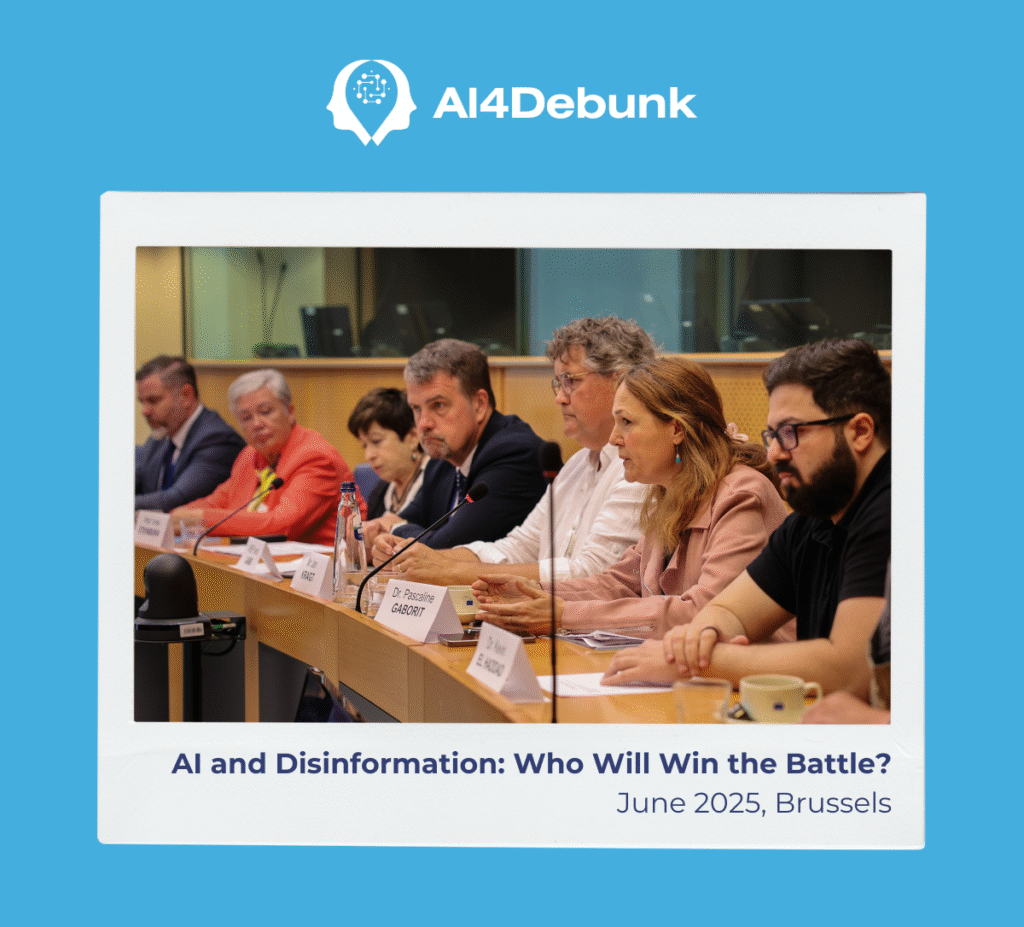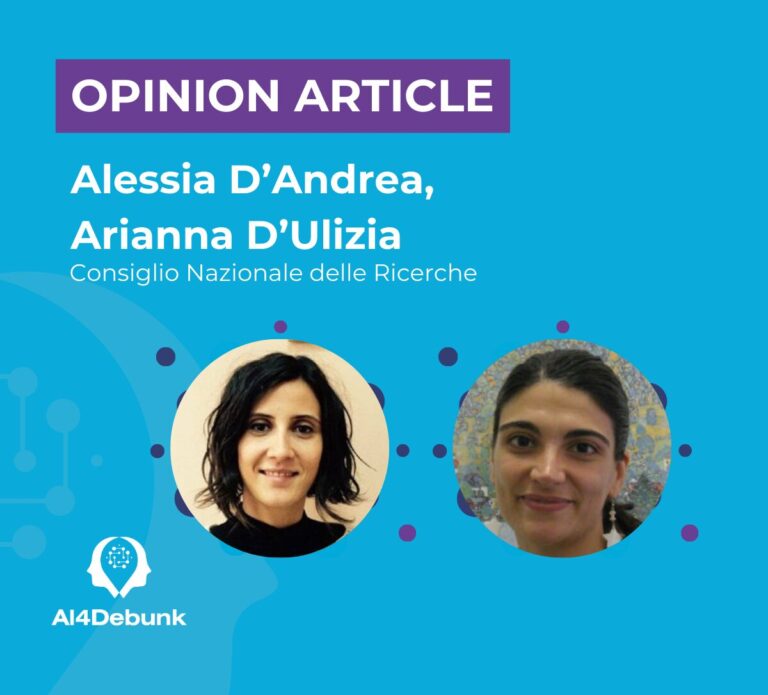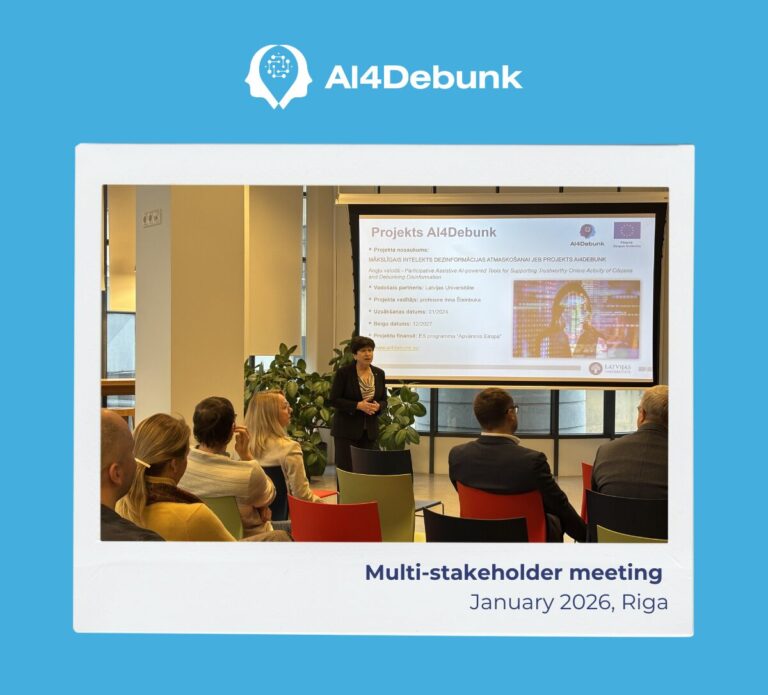European Parliament Hosts High-Level Roundtable on the Role of AI in Fighting Disinformation
On 3 June 2025, a high-level roundtable titled “AI and Disinformation: Who Will Win the Battle?“ took place at the European Parliament in Brussels. The event was co-hosted by Member of the European Parliament Prof. Ivars Ijabs (Renew, Latvia) and Prof. Inna Šteinbuka, coordinator of the AI4Debunk project from the University of Latvia.
The roundtable brought together researchers, policymakers, sociologists, media professionals, leading AI experts, civil society representatives, and institutional representatives to explore how artificial intelligence can be leveraged to counter disinformation across critical domains, including climate change, the war in Ukraine, strengthen digital resilience, and uphold democratic values across the European Union.
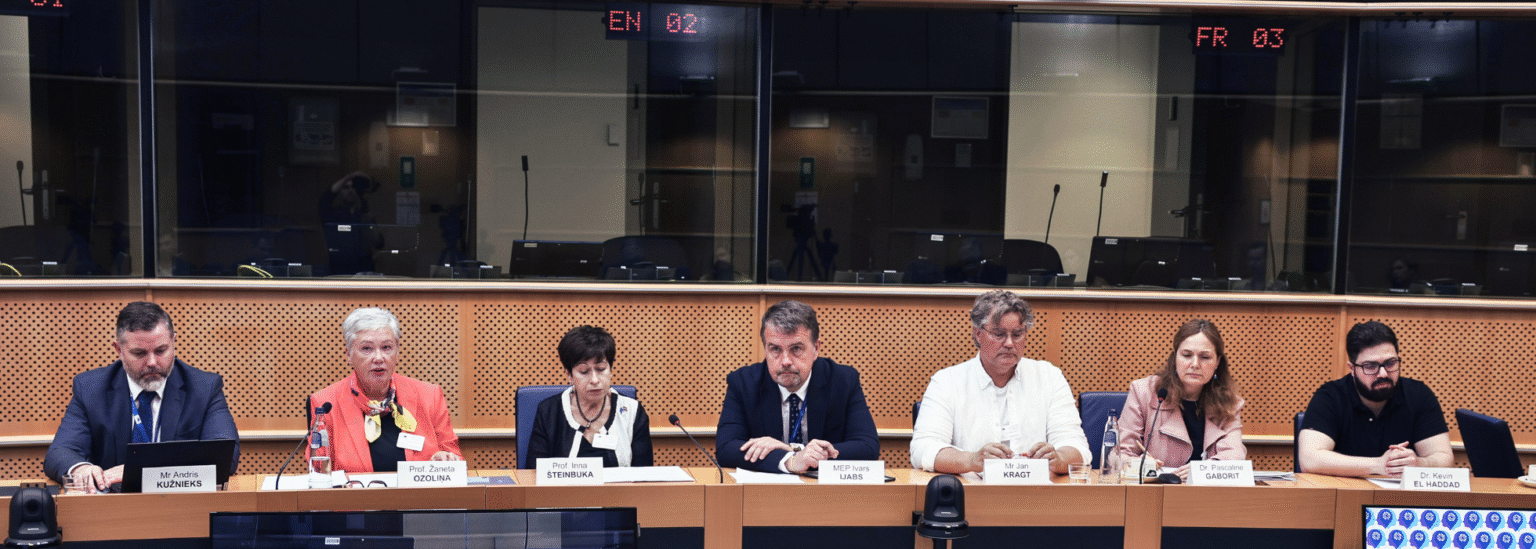
The event had thought-provoking questions in two intensive discussion rounds, culminating in an interactive Q&A session.
Opening the event, Prof. Ijabs highlighted the urgency of advancing the fight against false narratives:
“The tools to disseminate disinformation get ever more sophisticated, and, subsequently, the people who fight the spread of fake news, disinformation and distorted facts, must counter the hostile narratives with greater sophistication as well. It is a fight to preserve our democratic European values we collectively stand for, and strategically applied artificial intelligence is a technology that can help a great deal in combating disinformation and improving media literacy, especially among the European youth. The challenges we face today require modern tools, and organizations such as AI4Debunk are clearly moving in the right direction to offer a creative, contemporary, and much-needed push to fight for accessible information that is not contaminated by anti-European rhetoric,”
Prof. Ivars Ijabs, Member of the European Parliament
Prof. Šteinbuka presented the goals and current achievements of the AI4Debunk project, which focuses on advancing awareness, fostering media literacy, and developing evidence-based guidelines for the use of AI in addressing disinformation.
“Tackling disinformation requires more than just technical solutions, it demands collaboration between science, policy, and society. With AI4Debunk, we aim to revolutionize the fight against disinformation and foster trustworthy online activity through the development of AI-powered, human-centered tools. Our commitment is to safeguard democratic values and build a more informed and resilient society in the digital age. Our work is rooted in the belief that digital technologies must serve democratic integrity, not undermine it,”
Prof. Inna Šteinbuka, AI4Debunk Project Coordinator, University of Latvia
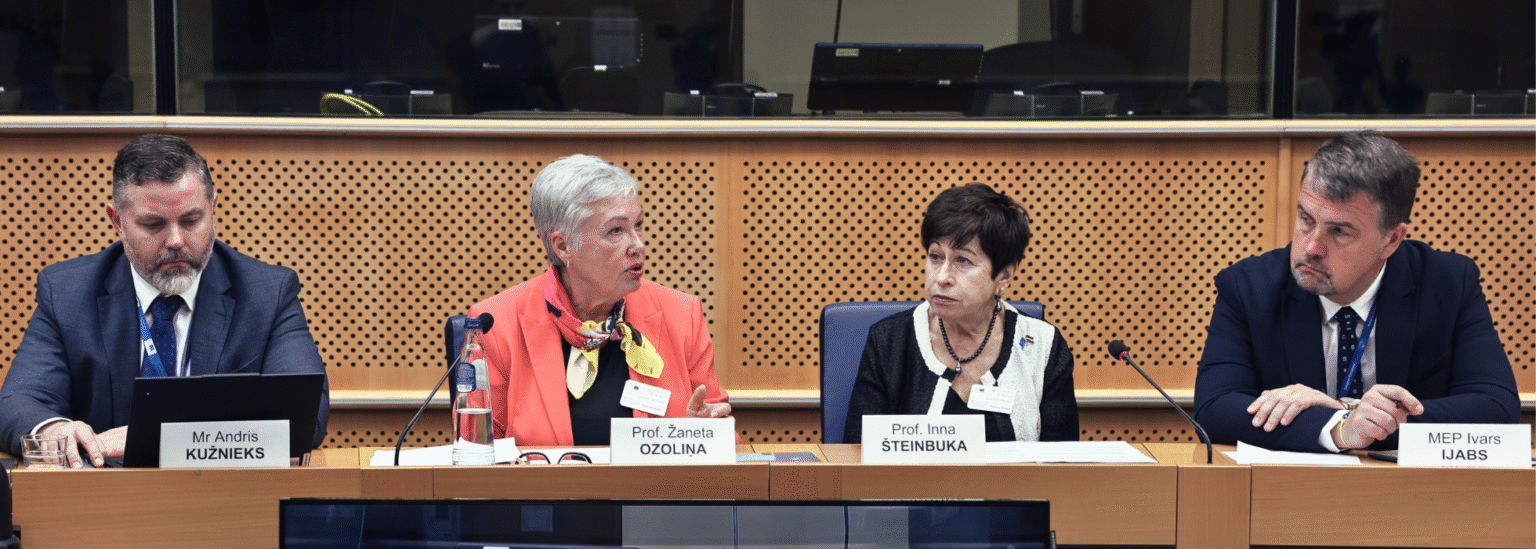
The event featured a dynamic exchange, reaffirming the need for cross-sector collaboration, agile policy frameworks, and sustained public engagement to address the evolving disinformation landscape in Europe.
Dr.Kevin El Haddad (UMONS) presented an overview of AI4Debunk technological pipeline and addressed the preparedness of current systems in dealing with the fast-paced development of AI and generative AI. His intervention also explored the technical methods to stop disinformation from spreading.
Jan Kragt (Innovative Power) highlighted the importance of education and keeping public awareness tools relevant amid rapidly changing disinformation tactics. He also examined what constitutes an effective overall strategy in the fight against disinformation, illustrating his points with two short animation videos that added a dynamic layer to the discussion.
Dr.Pascaline Gaborit (Pilot4Dev) presented the results from stakeholder consultations and expert interviews on the best possible responses to disinformation, outlining practical measures to mitigate false narratives and build resilience. She addressed the risks posed by climate-related disinformation and underscored the importance of evidence-based responses.
Prof. Žaneta Ozoliņa (University of Latvia) reflected on the main challenges tied to disinformation about Ukraine. She also highlighted the target groups most susceptible to targeted disinformation campaigns, stressing the need for tailored countermeasures.
Andris Kužnieks, Acting Head of the European Commission Representation in Latvia, detailed the European Commission’s priorities and upcoming policies in tackling disinformation, concluding with a reflection on key takeaways for addressing disinformation and reinforcing resilience.
Download full article in PDF here.
ᯓ★ About AI4Debunk
AI4Debunk is funded under the Horizon Europe programme (Grant Agreement No. 101135757) and brings together multidisciplinary partners working to equip European citizens with the knowledge, frameworks, and critical tools needed to navigate today’s complex information landscape.

